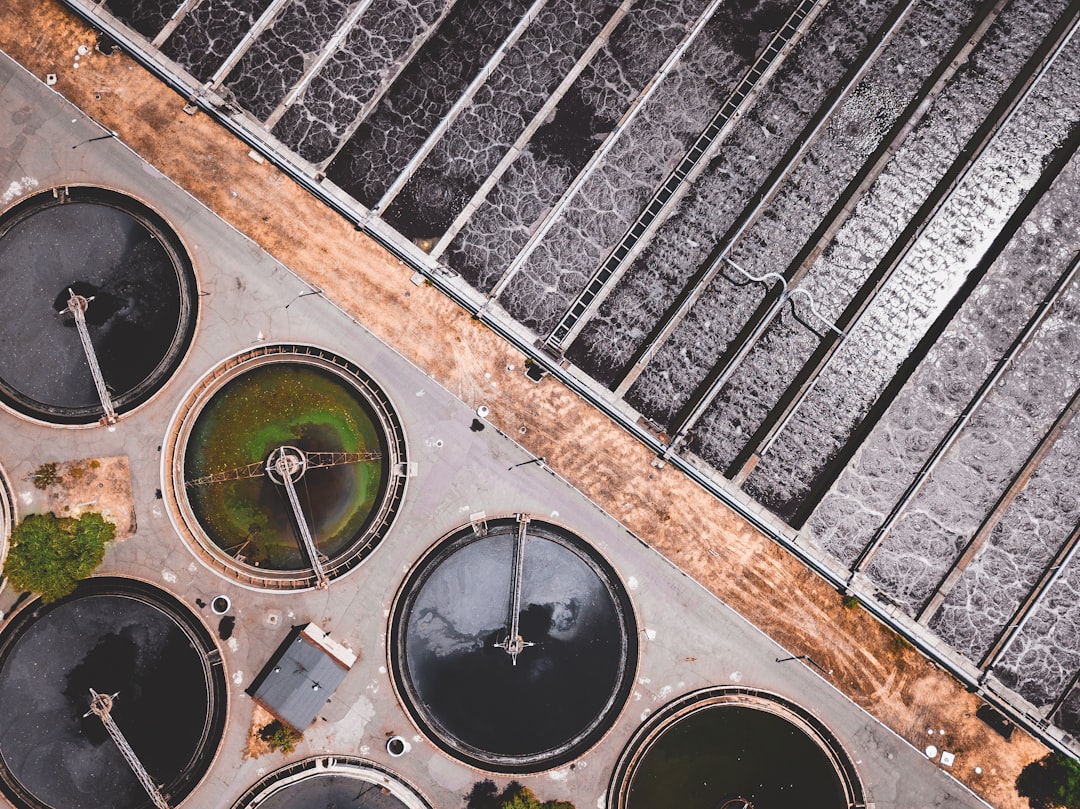Why Is Your Septic Tank Full Again?
 Photo from Unsplash
Photo from Unsplash
Originally Posted On: https://quikrooterca.net/why-is-your-septic-tank-full-again/
Why Is Your Septic Tank Full Again?
Overview
The independence of a septic system prevents you from having to rely on city sewer services. Your San Joaquin Valley home likely has a septic tank, drain field, and soil bed to manage wastewater. If you’ve recently pumped your tank and it seems full again, you might wonder what’s going wrong. In this guide, Quik-Rooter’s septic specialists explain how your system works, how to recognize a full tank, when to schedule pumping, and why you might need service more often than expected. We’ll also cover the importance of septic maintenance and when to schedule an inspection so that by the end, you’ll know exactly how to prevent a septic tank from filling up too quickly.
Highlights
- How your septic tank works
- Signs your septic system’s tank is full again
- The recommended frequency of septic tank pumping
- Reasons you might need frequent tank pumping
- Septic tank maintenance tips
- When to schedule your septic inspection
- Emergency septic service availability
Introduction
You probably don’t want to deal with messy backups or costly repairs, but constantly scheduling septic pumping isn’t exactly the best solution either. After all, costs add up quickly, and something deeper may be wrong with your system.
It’s time to get to the root of the issue and figure out why your septic tank isn’t performing as it should. Once you do, you can set things straight and get back to enjoying life.
Read through this blog post by Quik-Rooter for everything you need to know about troubleshooting septic issues.
How Does Your Septic Tank Work?
Your septic tank is your home’s first line of defense in managing wastewater. When you flush a toilet, run a sink, or use any water-based appliance, that wastewater flows into your septic tank, where it begins the treatment process. Inside your tank, solid waste settles at the bottom, forming sludge, while lighter materials like grease and oils rise to the top and form a layer of scum.
In between, a middle layer of partially treated liquid, known as effluent, flows out of your tank and into your drain field. Beneficial bacteria inside your tank break down organic matter, helping to reduce the amount of solid waste that accumulates. The effluent then slowly disperses through your drain field, filtering through layers of soil that further clean the water before it returns to the groundwater system.
This process actively maintains your home’s plumbing, treating and absorbing wastewater safely to prevent contaminating your property and local water sources.
What Are Signs Your Septic System’s Tank Is Full Again?
Slow-draining sinks, bathtubs, and toilets are key signals your septic system is full again.
Watch for these warning signs:
- Sewage backups: When waste starts coming back up into your toilets or drains, your tank is likely full.
- Gurgling pipes: Bubbling or gurgling sounds suggest trapped air from restricted wastewater flow.
- Unpleasant odors: A sewage smell inside or around your home means waste isn’t breaking down properly.
- Pooling water: Puddles or overly lush grass near the drain field may signal an overflow issue.
How Often Should You Schedule Septic Tank Pumping Service?
Most households only need septic tank pumping service every 3 to 5 years, but if you have a small tank or household larger than five people, you should schedule service sooner—ideally every 1 to 3 years.
What Are Common Reasons Your Septic Tank Needs To Be Pumped So Often?
If you call a septic contractor to pump your tank within days or weeks of your last service or even within a few months or a year, it’s safe to say there’s a problem with your system. A properly maintained septic tank shouldn’t fill up this fast under normal conditions.
Here are some of the most common reasons your septic tank needs frequent pumping service.
Is Your Household Using Too Much Water?
Excessive household water use can overload your septic system, preventing it from adequately separating and filtering waste.
Common causes of high water usage include:
- Running multiple appliances, such as dishwashers, washing machines, and showers, at once
- Leaky faucets or toilets constantly adding water to your sewage system
- Frequent laundry loads putting stress on your septic tank
If your household consumes more water than your system was designed for, your septic tank will fill up much faster, requiring more frequent pump-outs. Reducing water consumption and staggering water-heavy activities will help ease the strain on your system.
Does Heavy Rain and Flooding Affect Your Septic System?
Heavy rain and flooding can still impact your septic tank’s performance even after it’s emptied. When your drain field becomes oversaturated with water, it struggles to absorb and disperse wastewater properly. This can lead to backups, slow drains, and standing water in your yard because your tank is now full of rainwater, and there’s nowhere for this excessive moisture to go.
Here’s how rain and flooding cause septic issues:
- Soggy soil prevents proper drainage and causes wastewater to back up into your home
- Excess water in your drain field slows down the natural filtration process
- Septic tank floating or shifting happens when groundwater levels rise too high, leading to potential damage
Is Your Septic Tank Really Full or Is It Just Clogged?
Figuring out whether your septic tank is truly full or just clogged can save you a lot of frustration and unnecessary costs. A good first step is to observe how your sinks, toilets, and drains behave. If only one of your drains is slow or backing up, chances are it’s just a simple clog in that pipe. When multiple fixtures are draining slowly or making gurgling sounds, your septic system could be the issue.
Another sign to watch for is those unmistakable odors. Are you getting a strong sewage smell indoors or near your drain field? This could mean your system isn’t processing wastewater correctly.
You can also take a look outside. Do you see puddles forming near your drain field or patches of grass that are strangely greener than the rest of your yard? If so, your septic tank might be struggling to drain.
If you’re comfortable with a quick inspection, carefully remove your septic tank lid and check the water level inside. If it’s below the outlet pipe, you likely have a clog somewhere in your system.
When the liquid level is at or above the outlet, your tank is full and needs to be pumped. If you’re still not sure or you’re dealing with backups inside your home, you should reach out to a reputable septic company and schedule an appointment. They’ll explain their findings and recommend the necessary repairs.
How Do You Perform Septic Tank Maintenance?
A neglected septic system can be the catalyst for a range of problems that can be inconvenient, expensive to fix, and hazardous to your health. Proper maintenance helps give your wastewater system a longer life, protect the environment, and prevent groundwater contamination. With just a few routine steps, you can keep your septic tank in good working order and avoid unexpected problems.
Follow these septic tank maintenance practices:
- Pump your tank regularly
- Watch your water usage
- Be mindful of what you flush
- Use bacteria additives when recommended by a licensed septic expert
- Keep your drain field clear
- Don’t overlook the value of scheduling a septic inspection
When Should You Schedule a Septic Tank Inspection?
Your septic system is out of sight, but it shouldn’t be out of mind. Scheduling a tank evaluation at least once a year is the best way to catch minor issues before your home is subjected to wastewater backup risks.
There are times when an inspection is even more important, such as:
- When buying or selling a home: A septic inspection can uncover hidden problems before they become your responsibility.
- When you haven’t pumped your tank in over three years: It’s a good idea to check if it’s time for service.
- When you’re noticing sluggish drains, weird gurgling sounds, or terrible odors: These are red flags that your system might need attention.
Even if everything seems fine, having a routine check that can save you from unexpected headaches doesn’t hurt. Regular inspections keep your system running smoothly and prevent major failures, but more importantly, they help you avoid the nightmare of sewage backing up into your home. When in doubt, call a professional—it’s a small step that can save you from dealing with a big mess.
Are Emergency Septic Pumping Services Available?
Yes. Many septic service companies offer emergency pumping because septic issues don’t wait for regular business hours. Call a professional immediately to prevent further damage when you’re dealing with backups or serious drainage issues.
Avoid a Septic Tank That Fills up Too Quickly
Now that you’ve read this far, you know that a combination of factors can cause your septic tank to fill up faster than you’re expecting. Whether it’s heavy rainfall saturating your drain field, a tank that’s too small for your household’s needs, or a stubborn blockage preventing proper drainage, the key to avoiding frequent pump-outs is preventive maintenance and smart septic system management.
Let an experienced local septic company handle emptying and servicing your tank. Quik-Rooter’s septic specialists are standing by, ready to take your call and help you figure out why your septic system looks full so soon.
Information contained on this page is provided by an independent third-party content provider. XPRMedia and this Site make no warranties or representations in connection therewith. If you are affiliated with this page and would like it removed please contact [email protected]

